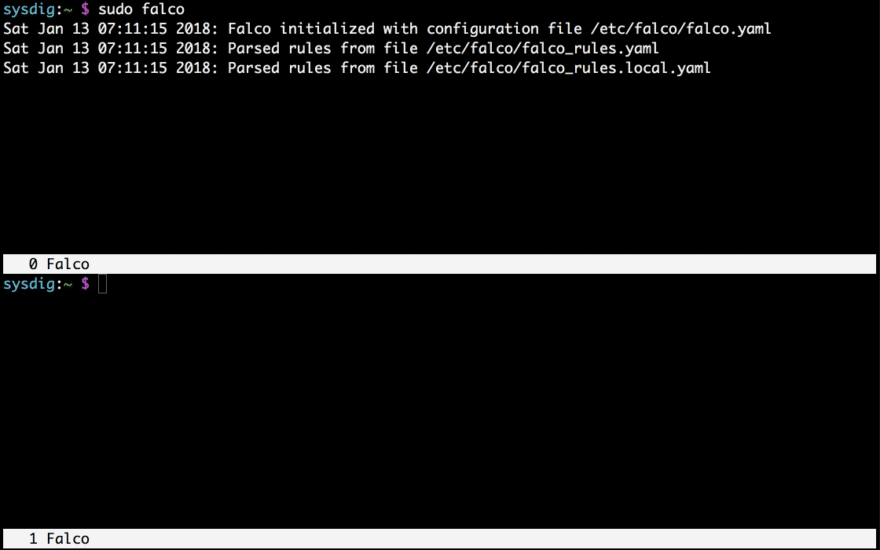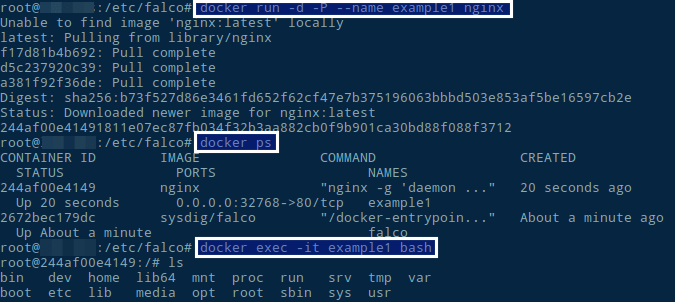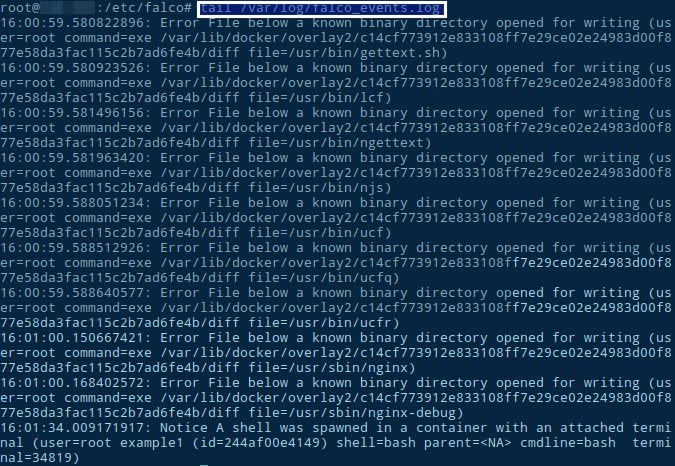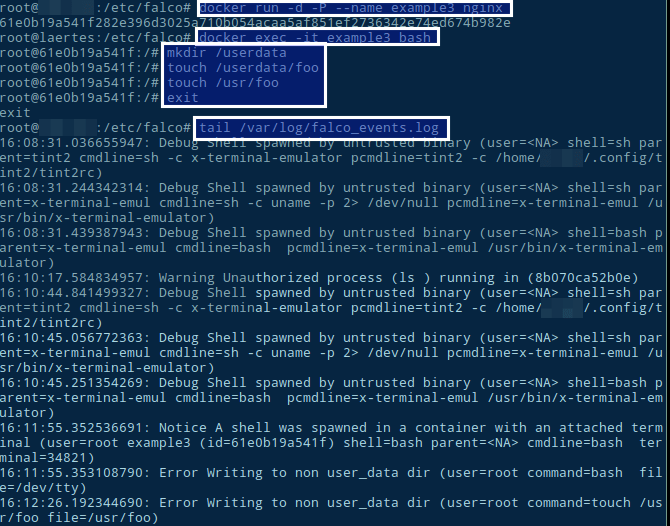Hello again! Continuing with the security sprint articles, this week I’m going to talk about Falco. Nope! I’m not talking about the musician, I’m referring to an open source tool that allows us to monitor behavioral activity and detect anomalous activity in applications.

Some examples of anomalous detection are shell running inside a container in production, SQL injection attacks, rootkit’ed host, unauthorized process, write to non user-data directory, etc. An example of Falco rule is:
- macro: bin_dir
condition: fd.directory in (/bin, /sbin, /usr/bin, /usr/sbin)
- macro: open_write
condition: (evt.type=open or evt.type=openat) and evt.is_open_write=true and fd.typechar='f'
- macro: package_mgmt_binaries
items: [dpkg, dpkg-preconfigu, rpm, rpmkey, yum, frontend]
- rule: Write below binary dir
desc: an attempt to write to any file below a set of binary directories
condition: bin_dir and evt.dir = < and open_write and not proc.name in (package_mgmt_binaries)
output: "File below a known binary directory opened for writing (user=%user.name command=%proc.cmdline file=%fd.name)"
priority: WARNING
The most important part is the condition rule, a filter applied to each system call. The final output is a notification message using a mix of plain text and information from the event. We will see and example, but first, let’s install Falco.
$ sudo -s
# mkdir /etc/falco
# cd /etc/falco
/etc/falco# curl https://raw.githubusercontent.com/katacoda-scenarios/sysdig-scenarios/master/sysdig-falco/assets/falco.yaml -o falco.yaml
/etc/falco# curl https://raw.githubusercontent.com/katacoda-scenarios/sysdig-scenarios/master/sysdig-falco/assets/falco_rules.yaml -o falco_rules.yaml
/etc/falco# touch /var/log/falco_events.log
falco.yaml configures the Falco service, falco_rules.yaml contains the threat detection patterns and falco_events.log will be used as the events log file. For mounting those…
# docker pull sysdig/falco
# docker run -d --name falco --privileged -v /var/run/docker.sock:/host/var/run/docker.sock -v /dev:/host/dev -v /proc:/host/proc:ro -v /boot:/host/boot:ro -v /lib/modules:/host/lib/modules:ro -v /usr:/host/usr:ro -v /etc/falco/falco.yaml:/etc/falco/falco.yaml -v /etc/falco/falco_rules.yaml:/etc/falco/falco_rules.yaml -v /var/log/falco_events.log:/var/log/falco_events.log sysdig/falco
Now, let’s get back to the example. In the official documentation it explains how the rule monitors file opens to identify attempts to open a file. I’m going to try the same on my own container using docker:

After playing around a bit, let’s exit and tail our log.
tail /var/log/falco_events.log

That’s it! Falco throws an advise.

Welp, now let’s try another example, any process trying to write to a non data directory. After curl https://raw.githubusercontent.com/katacoda-scenarios/sysdig-scenarios/master/sysdig-falco/assets/falco_rules_step4.yaml -o falco_rules.yaml and restarting docker falco:

So, that’s it! For more information on using docker and falco, check this tutorial where the yaml files I used are hosted.
Hope you guys enjoyed this week Security Sprint!
Also written in: https://dev.to/terceranexus6/security-sprint-falco-e0o

